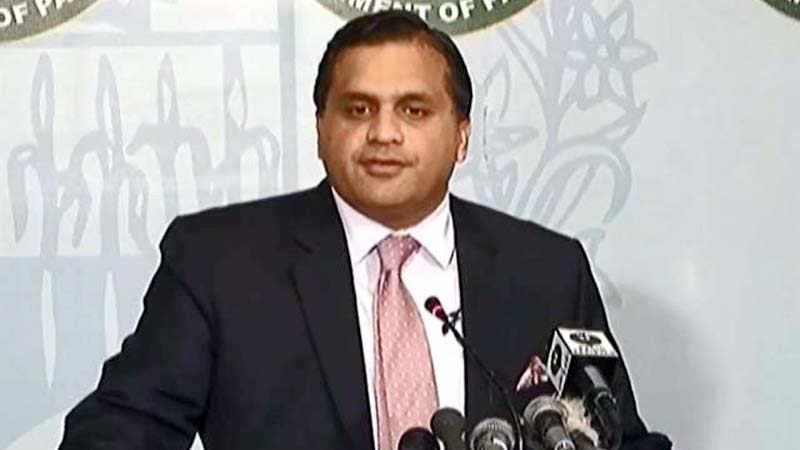 ISLAMABAD: Foreign Office Spokesman Dr Muhammad Faisal on Thursday said that India’s latest test of BrahMos cruise missile was a threat to regional peace and stability.
ISLAMABAD: Foreign Office Spokesman Dr Muhammad Faisal on Thursday said that India’s latest test of BrahMos cruise missile was a threat to regional peace and stability.
Addressing the weekly press briefing, he said that such moves threatened regional peace and stability. “They also expose Indian duplicity that it only pays lip service to the arms control regimes. Pakistan has consistently raised serious concerns about these developments as they negatively impact regional security and stability,” he said.
“Pakistan continues to stress the need for a meaningful dialogue for confidence-building, avoidance of arms race and promotion of strategic stability in South Asia. Pakistan’s proposal for a strategic restraint regime for South Asia remains on the table.”
Dr Faisal said that the recent increase in missile tests by India after its membership of the Missile Technology Control Regime (MTCR) “demonstrates its policy of duplicity” as it had refrained from any such tests in the period before receiving the membership, likely to help its chances of gaining it.
He also said that Foreign Minister Khawaja Muhammad Asif would lead Pakistan’s delegation at 7th Ministerial Conference of Heart of Asia being held at Azeri capital Baku today (Friday).
He said Pakistan attached importance to Health of Asia process. Replying to questions he said there had been increased interaction between Pakistan and the United States following announcement of new Afghanistan and South Asia strategy by President Trump.
He said the two countries considered mutual engagements as beneficial and that was why the US Defence secretary was visiting Pakistan.
To a question about the increase in opium production in Afghanistan, the spokesperson said Pakistan had serious concerns over the issue due to the nexus between narcotics trade and financing of terrorism.
Dr Faisal said Pakistan highlighted its “successful counter-terrorism operations and the comprehensive National Action Plan” during the first meeting of the defence ministers of countries involved in the Islamic Military Counter Terrorism Coalition (IMCTC) held last Sunday.
“The participants discussed ways to boost cooperation for combating terrorism through intelligence sharing, capacity building, joint exercises and media campaign,” the FO said, regarding the agenda of the Saudi-led Islamic military coalition. Dr Faisal said Pakistan had expressed its willingness to share its intellectual, informational, counter-financing and military experience and capabilities through the forum of the IMCTC, a move “aimed at enhancing the ability of its member states to counter the scourge of terrorism and extremism”.
To a question about any possible concerns of Iran regarding the coalition and Pakistan’s role in it, he said: “We are in touch with Iran and the army chief paid a visit to Teheran before the meeting of the coalition.”
Referring to Prime Minister Shahid Khaqan Abassi`s visit to Saudi Arabia, the spokesperson said the visit was a manifestation of our cordial ties with that country and the PM had discussed regional and international matters during his meetings with Saudi leadership.
The FO also informed that the prime minister was currently in Russia for the 16th meeting of the Council of the Heads of Government (CHG) of the Shanghai Cooperation Organisation (SCO).
The premier was there on the invitation of Russian Prime Minister Medvedev.
To a question, the spokesperson said Pakistan’s position on Syria was based on neutrality, impartiality and respect for Syrian independence, unity, sovereignty and territorial integrity.
“Pakistan supports all efforts employed at facilitating a peaceful Syrian-led and inclusive solution that meets the aspirations of the Syrian people through a comprehensive political dialogue,” he said.
Published in Daily Times, December 1st 2017.